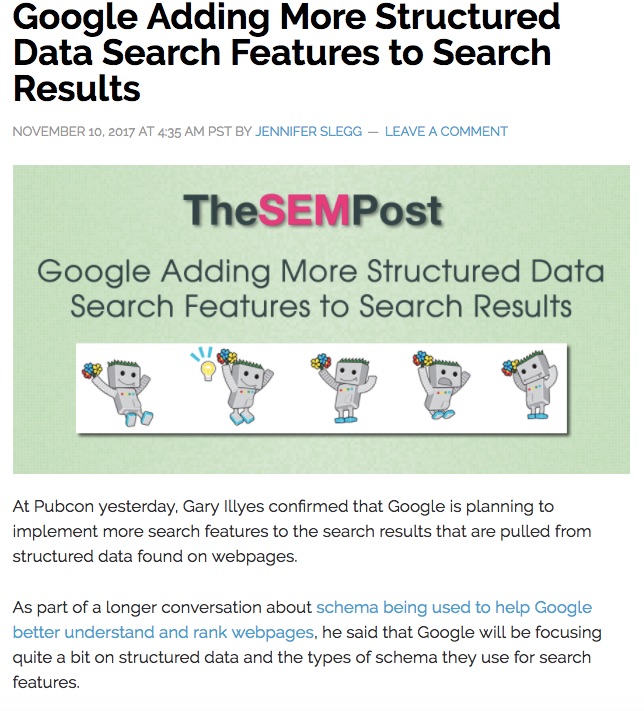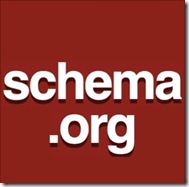
Structured Data: Helping Google Understand Your Site
Add Schema.org structured data to your pages because during indexing, we will be able to better understand what your site is about.
Check out our new fixed price service to find out how your site is performing!

Add Schema.org structured data to your pages because during indexing, we will be able to better understand what your site is about.

I spend a significant amount of time working on the supporting software, vocabulary contents, and application of Schema.org. So it is with great pleasure, and a certain amount of relief, I share the release of Schema.org 3.1 and share some hidden gems you find in there.

I find myself in New York for the day on my way back from the excellent Smart Data 2015 Conference in San Jose. It’s a long story about red-eye flights and significant weekend savings which I won’t bore you with, but it did result in some great chill-out time in Central Park to reflect on the week.
In its long auspicious history the SemTech, Semantic Tech & Business, and now Smart Data Conference has always attracted a good cross section of the best and brightest in Semantic Web, Linked Data, Web, and associated worlds. This year was no different. In my new role as an independent working with OCLC and at Google.
I was there on behalf of OCLC to review significant developments with Schema.org in general – now with 640 Types (Classes) & 988 properties – used on over 10 Million web sites.

A bit of a profound question – triggered by a guest post on Museums Computer Group by Nick Poole CEO of The Collections Trust about Culture Grid and an overview of recent announcements about it. Broadly the changes are that: The Culture Grid closed to ‘new accessions’ (ie. new collections of metadata) on the 30th April The existing index and API will continue to operate in order to ensure legacy support Museums, galleries, libraries and archives wishing to contribute material to Europeana can still do so via the ‘dark aggregator’, which the Collections Trust will continue to fund Interested parties …

This post is about an unusual, but very useful, aspect of the Schema.org vocabulary — the Role type.

Google announced yesterday that it is the end of the line for Freebase – will this be good for Wikidata?

One of the most challenging challenges in my evangelism of the benefits of using Schema.org for sharing data about resources via the web is that it is difficult to ‘show’ what is going on. The scenario goes something like this….. “Using the Schema.org vocabulary, you embed data about your resources in the HTML that makes up the page using either microdata or RDFa….” At about this time you usually display a slide showing html code with embedded RDFa. It may look pretty but the chances of more than a few of the audience being able to pick out the schema:Book …

As is often the way, you start a post without realising that it is part of a series of posts – as with the first in this series. That one – Entification, the following one – Hubs of Authority and this, together map out a journey that I believe the library community is undertaking as it evolves from a record based system of cataloguing items towards embracing distributed open linked data principles to connect users with the resources they seek. Although grounded in much of the theory and practice I promote and engage with, in my role as Technology Evangelist …
Typical! Since joining OCLC as Technology Evangelist, I have been preparing myself to be one of the first to blog about the release of linked data describing the hundreds of millions of bibliographic items in WorldCat.org. So where am I when the press release hits the net? 35,000 feet above the North Atlantic heading for LAX, that’s where – life just isn’t fair. By the time I am checked in to my Anahiem hotel, ready for the ALA Conference, this will be old news. Nevertheless it is significant news, significant in many ways. OCLC have been at the leading edge …

Two, on the surface, totally unconnected posts – yet the the same message. Well that’s how they seem to me anyway.
Post 1 – The Problem With Wikidata from Mark Graham writing in the Atlantic. Post 2 – Danbri has moved on – should we follow? by a former colleague Phil Archer.